

| Region rejsu : Europa |
| Firma : Croisi Europe |
| Statek : MS Modigliani |
| Data rozpoczęcia : niedz. 13 wrz 2026 |
| Data zakończenia : pt. 25 wrz 2026 |
| Liczba nocy : 12 nocy |
| Dzień | Data | Port | Wypłynięcie | Odpłynięcie |
|---|---|---|---|---|
| 1 | 13.09 niedz. | Strasburg / Francja | 18:00 | 20:00 |
| 2 | 14.09 pon. | Moguncja / Niemcy | 08:00 | 11:00 |
| 2 | 14.09 pon. | Frankfurt nad Menem / Niemcy | 15:00 | 21:00 |
| 3 | 15.09 wt. | Miltenberg / Niemcy | 08:00 | 12:00 |
| 3 | 15.09 wt. | Wertheim am Main / Niemcy | 16:00 | |
| 4 | 16.09 śr. | Wertheim am Main / Niemcy | 04:30 | |
| 4 | 16.09 śr. | Karlstadt / Niemcy | 13:00 | 13:30 |
| 4 | 16.09 śr. | Würzburg / Niemcy | 17:00 | 17:30 |
| 5 | 17.09 czw. | Schweinfurt / Niemcy | 07:00 | 13:00 |
| 5 | 17.09 czw. | Bamberg / Niemcy | 21:00 | |
| 6 | 18.09 pt. | Bamberg / Niemcy | 02:00 | |
| 6 | 18.09 pt. | Norymberga / Niemcy | 13:00 | 18:00 |
| 6 | 18.09 pt. | Mühlhausen / Niemcy | 23:00 | |
| 7 | 19.09 sob. | Mühlhausen / Niemcy | 05:30 | |
| 7 | 19.09 sob. | Kelheim / Niemcy | 13:00 | 13:30 |
| 7 | 19.09 sob. | Ratyzbona / Niemcy | 17:00 | 23:00 |
| 8 | 20.09 niedz. | Passau / Niemcy | 10:00 | 16:00 |
| 9 | 21.09 pon. | Melk / Austria | 06:00 | 12:00 |
| 9 | 21.09 pon. | Dürnstein / Austria | 13:30 | 15:30 |
| 9 | 21.09 pon. | Żyła / Austria | 20:30 | |
| 10 | 22.09 wt. | Żyła / Austria | 18:30 | |
| 11 | 23.09 śr. | Esther / Węgry | 06:00 | 12:00 |
| 11 | 23.09 śr. | Budapeszt / Węgry | 16:00 | |
| 12 | 24.09 czw. | Budapeszt / Węgry | ||
| 13 | 25.09 pt. | Budapeszt / Węgry | 09:00 |
All inclusive on board:
All meals included - DRINKS INCLUDED with meals and at the bar
Refined French cuisine - Gala dinner and evening - Welcome cocktail
Free Wi-Fi onboard
Headsets are included for excursions
Official welcome from the captain and crew
Onboard activities
Travel assistance and repatriation insurance
All port fees included
Additional expenses:
Airfare and transfers to/from the departure and arrival ports
Personal expenses (e.g., souvenirs, extra drinks beyond those included)
Tips for crew and guides (recommended) from €9 per day per guest
Medical insurance (optional, at your own discretion)
Excursions and activities not included in the program
Additional onboard services (spa, massage, laundry, etc.)
PAYMENT AND BOOKING CONDITIONS:
A deposit 30 % is due within 4 days after confirmation if you pay credit card, bank transfer, or personal check. If you pay by credit card, you must sign an authorization form. If paying by wire transfer, the transfer must be received within 8 days after confirmation. Final payment is due at least 90 days prior to departure. Vouchers will be sent by email at 30 days prior to departure and only when full payment has been made. You are considered confirmed when we receive your deposit of 30 % of the price of the cruise, or, if you are confirmed within 90 days before departure, you are confirmed when we receive your full payment. Failure to pay the balance by the 90-day deadline is a default that entitles us to cancel your agreement and retain your deposit if you do not pay within eight days after notice of nonpayment.
CANCELLATION:
1) TRAVELLER’S RIGHT OF CANCELLATION
The traveller may cancel the contract at any time prior to the start of the trip or stay, subject to the payment of appropriate cancellation fees or, where applicable, standard cancellation fees charged by the organiser or retailer, in accordance with Article L. 211-14 I of the French Tourism Code.
2) CANCELLATION COSTS
In the event of cancellation by the customer, and in accordance with Article L 211-14 of the French Tourism Code, the sums paid will be reimbursed minus the cancellation fees per person specified below, depending on the date of cancellation in relation to the departure date, and the non-refundable costs of insurance, reservation fees and visa fees, as well as all other insurance and cancellation fees required by our suppliers. If one of the passengers in a double room or cabin cancels his/her reservation, the remaining passenger will have to pay the double room or cabin supplement for individual use. All cancellations must be sent to the seller by registered mail with acknowledgment of receipt..
Cost of cancelling CroisiEurope river cruises:
• More than 90 days before date of departure: 150 €, not including VAT, in administration fees will be charged per person (fees for themed-weekend and Christmas-market cruises are listed after)
• From 90 to 60 days: 20 % of total amount of cruise package
• From 59 to 30 days: 50 % of total amount of cruise package
• From 29 to 19 days: 60 % of total amount of cruise package
• From 18 to 9 days: 75 % of total amount of cruise package
• 8 days or less before departure: 100 % of total amount of cruise package
For CroisiEurope themed-weekend and Christmas-market river cruises, a cancellation fee of 50 €, not including VAT, will be charged per person at more than 90 days before departure. The fee schedule listed above remains unchanged for these cruises.
Cost of cancelling CroisiEurope seafaring cruises:
• More than 90 days before date of departure: 300 €, not including VAT, in administration fees will be charged per person
• From 90 to 60 days: 40 % of total amount of cruise package
• From 59 to 30 days: 60 % of total amount of cruise package
• From 29 to 9 days: 75 % of total amount of cruise package
• 8 days or less before departure: 100 % of total amount of cruise package
Cancellation terms and conditions above, the cancellation fees for CroisiEurope “New Year’s Eve” river and seafaring cruises are as follows:
• More than 90 days before date of departure: 300 €, not including
VAT, in administration fees will be charged per person
• From 90 to 60 days: 40 % of total amount of cruise package
• From 59 to 30 days: 60 % of total amount of cruise package
• From 29 to 20 days: 75 % of total amount of cruise package
• 19 days or less before departure: 100 % of total amount of cruise package
Cancellation fees for the cruises on the Mekong, Ganges, Nile and in Southern Africa:
• More than 90 days before date of departure: 300 €, not including VAT, in administration fees will be charged per person
• From 90 to 61 days: 35 % of total amount of cruise package
• From 60 to 31 days: 50 % of total amount of cruise package
• From 30 to 20 days: 70 % of total amount of cruise package
• From 19 to 9 days: 80 % of total amount of cruise package
• 8 days or less before departure: 100 % of total amount of cruise package
By accepting these general terms and conditions of sale, the traveller expressly acknowledges that he/she has been previously informed and agrees to the cancellation fees in the manner set out above.
IMPORTANT: All packages including air transport are subject to the general and specific cancellation conditions of the designated airline companies. In the event of cancellation by one or more passengers, the following cancellation conditions shall be applied:
• River, maritime and coastal services: pursuant to the general terms and conditions of CroisiEurope.
• Air transport: terms and conditions of the designated airline company, available on the web sites of the respective airlines or from our booking departments on request.
In addition, the amount of cancellation fees relating to land-based services (hotel, for example) will correspond to the amount of actual fees invoiced by the partner to CroisiEurope.
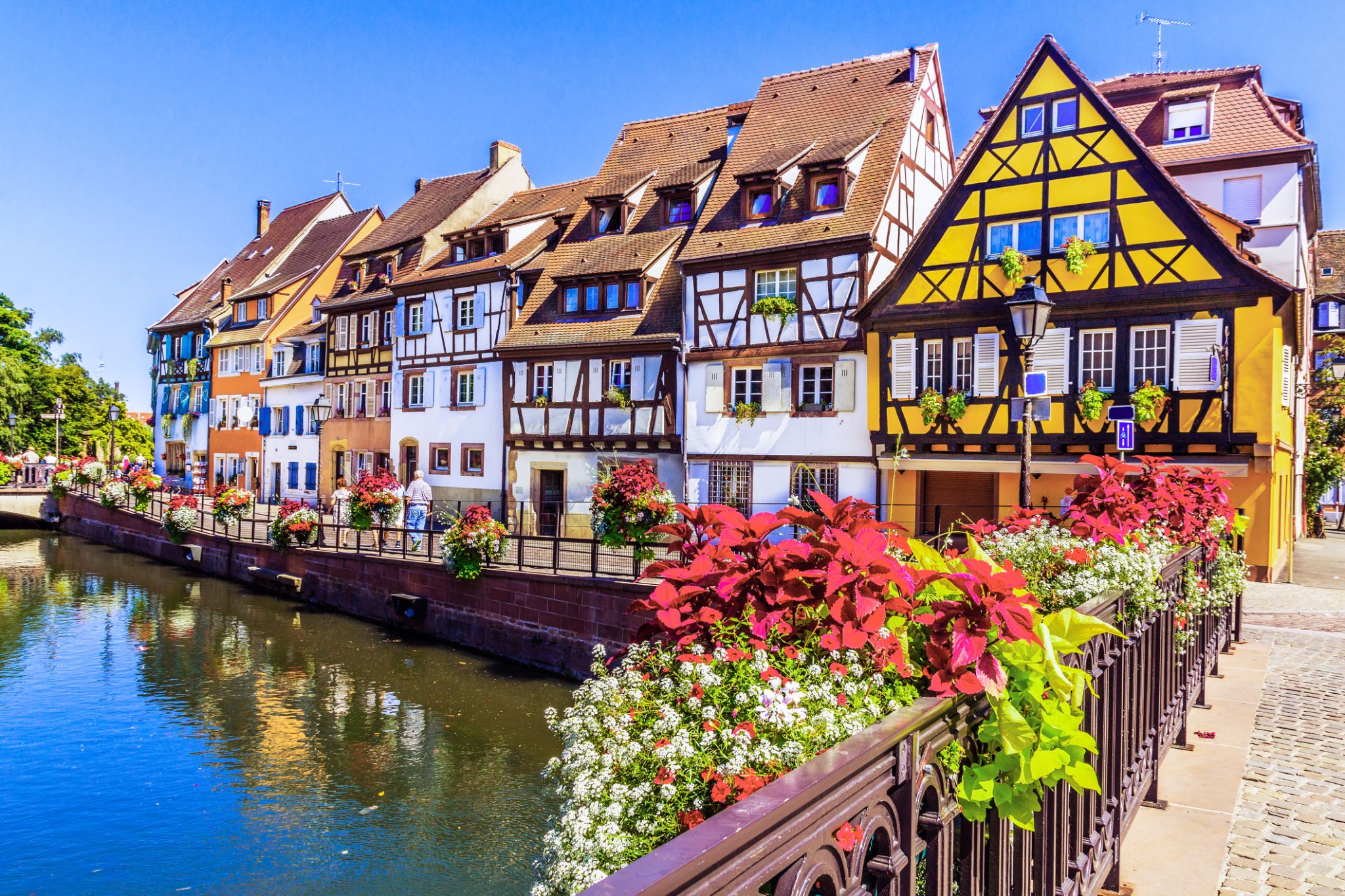
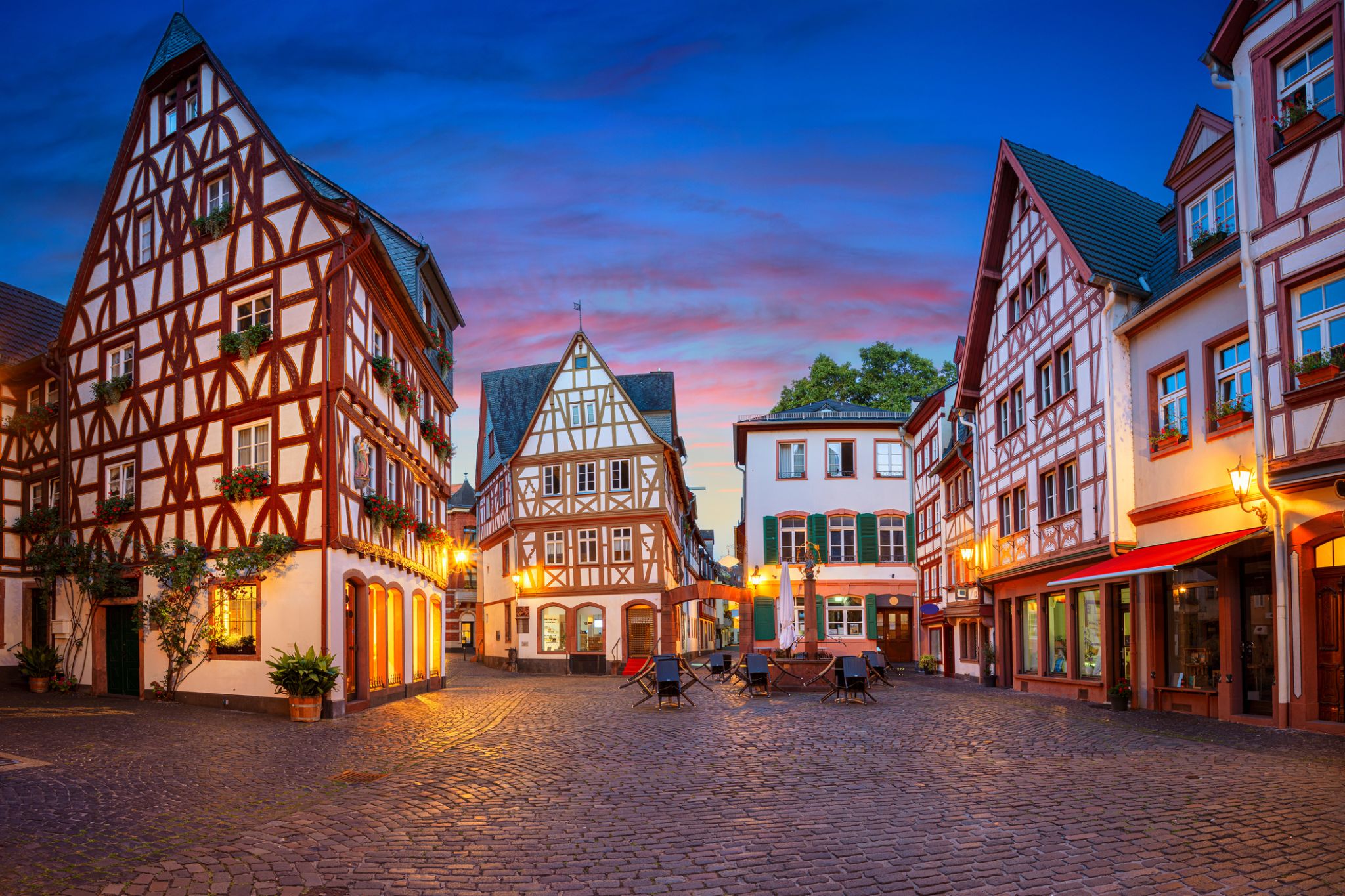
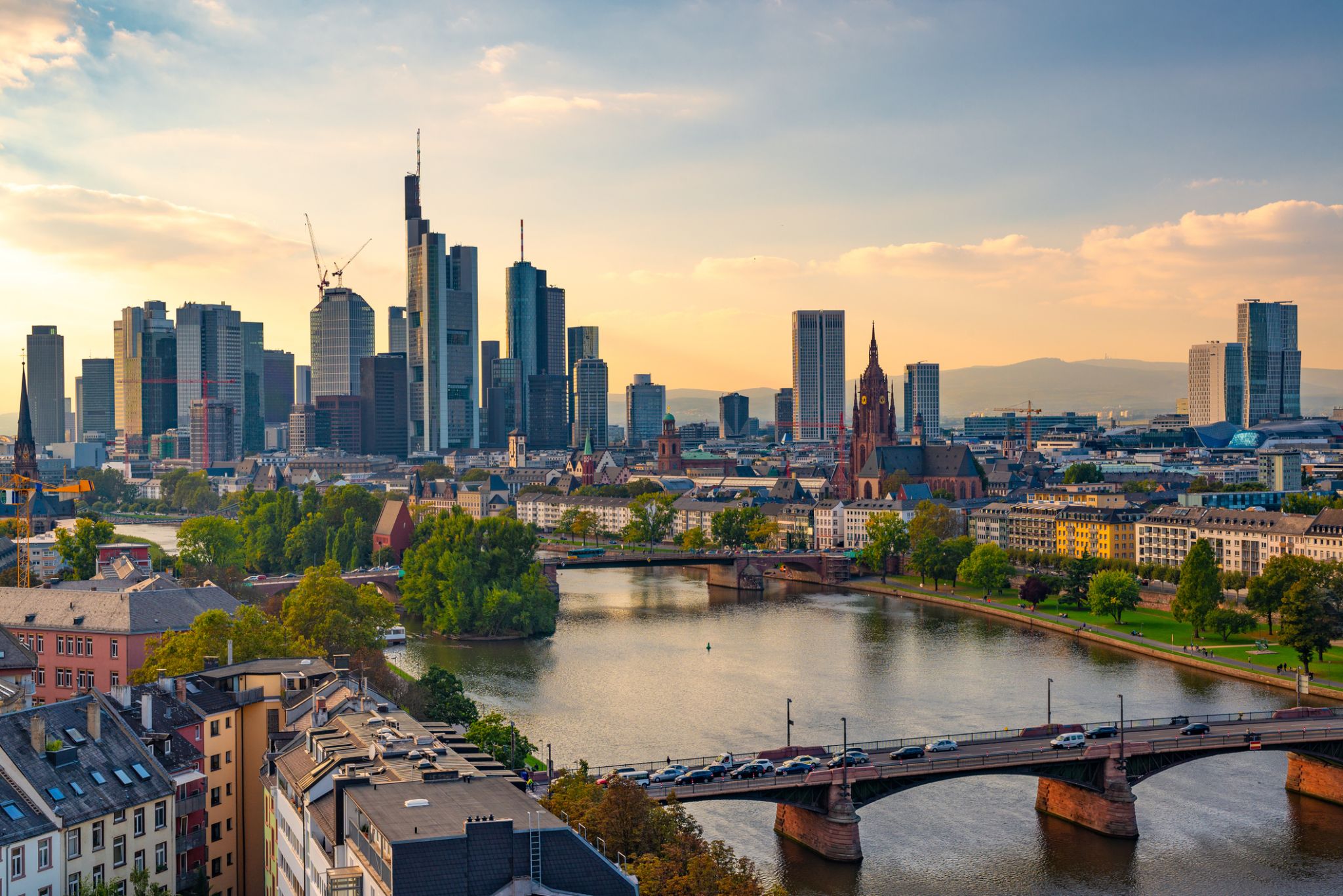
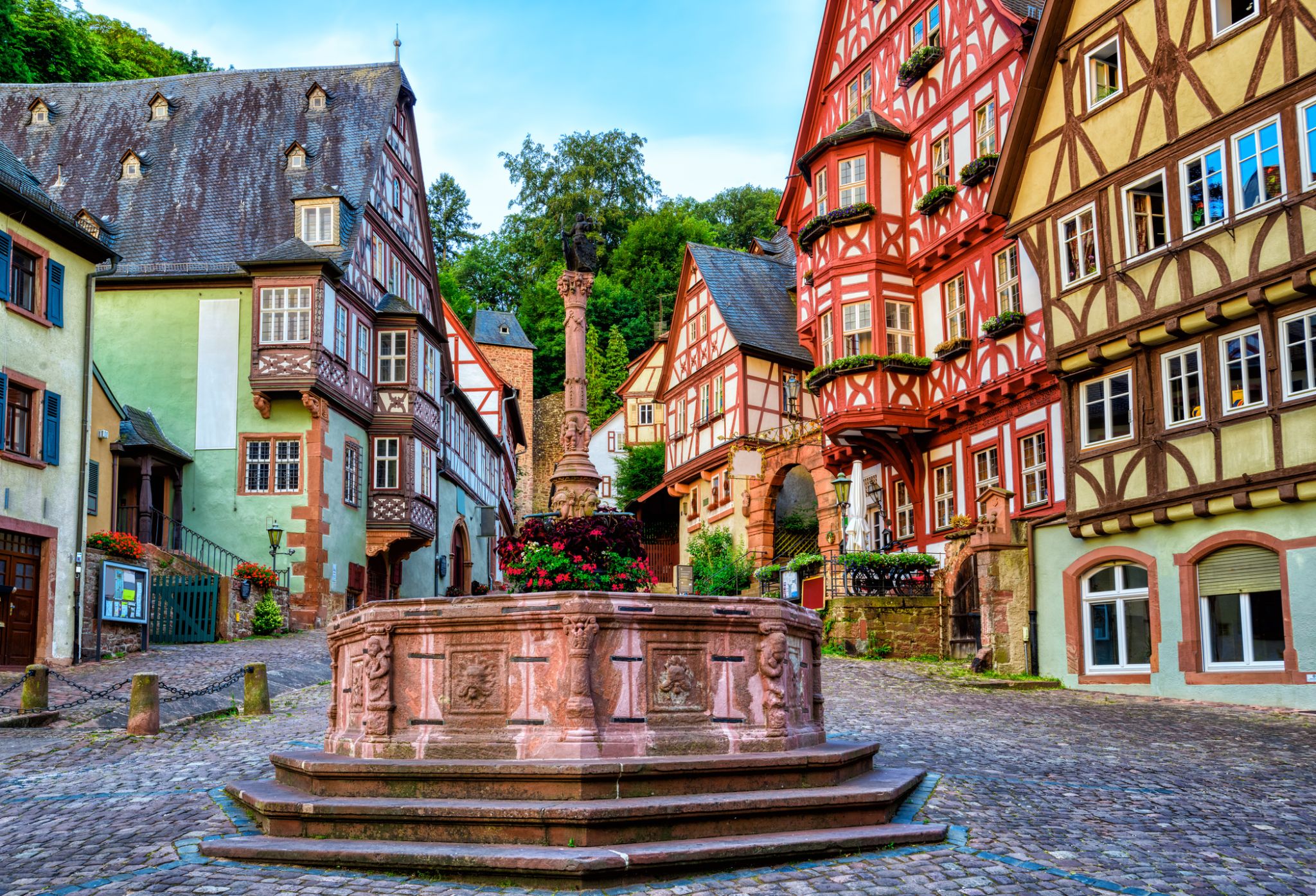
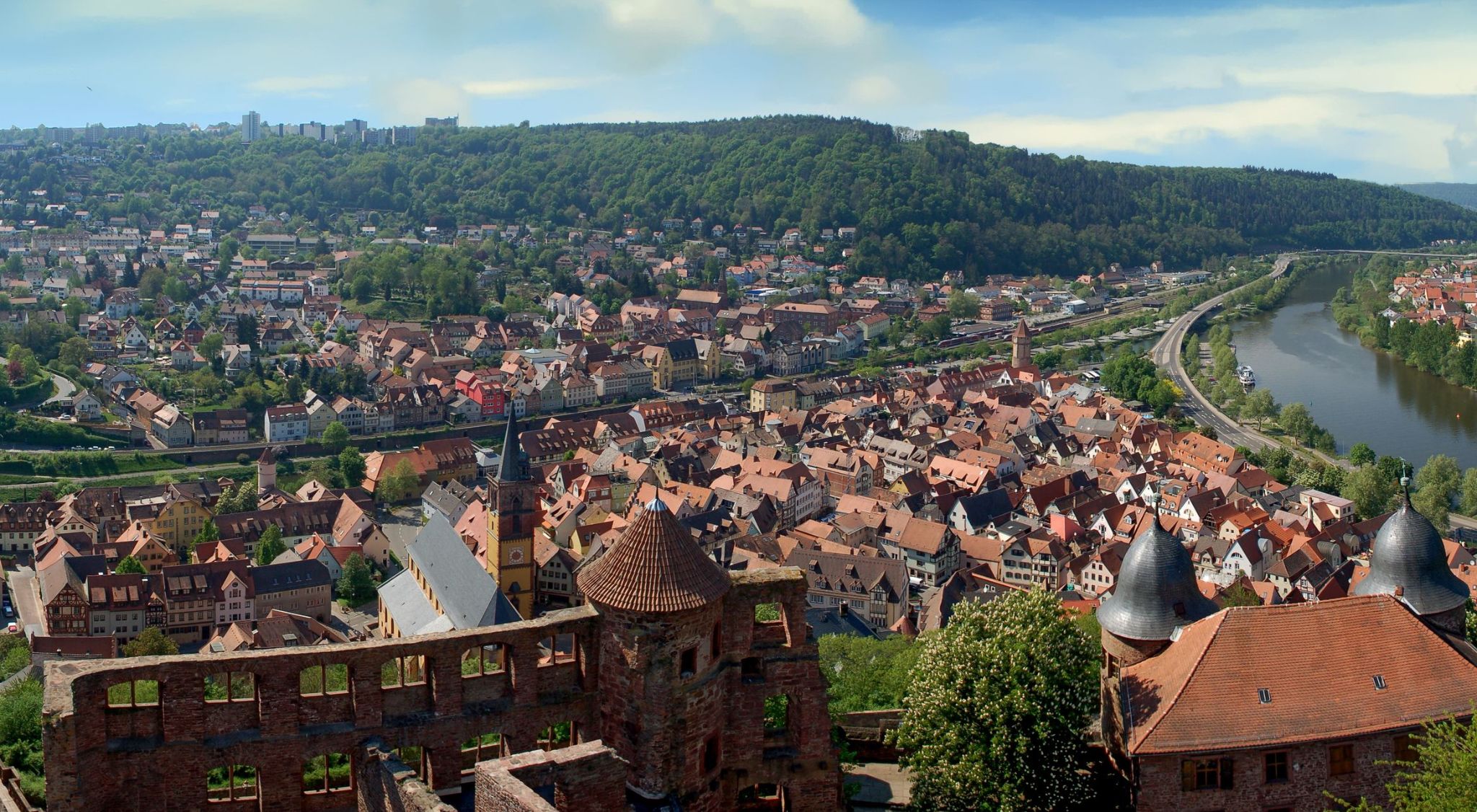
Ukryte w sercu malowniczej doliny rzeki Men, Wertheim am Main to miasto, które zachwyca swoją historyczną atmosferą i naturalnym pięknem. W jego starym mieście czekają na ciebie wąskie brukowane uliczki, domy w stylu północno-niemieckiego szkieletu oraz przytulne kawiarnie, w których możesz delektować się filiżanką kawy, obserwując wolno płynącą rzekę. Miasto jest idealnym miejscem dla tych, którzy szukają harmonii między historią a naturą.
Ponadto Wertheim am Main słynie ze swojego zamku, który wznosi się na wzgórzu i oferuje zapierający dech w piersiach widok na okoliczne krajobrazy. Historyczne centrum, znane z tradycji rzemieślniczych, a także Muzeum Szkła i outlet Wertheim Village sprawiają, że miasto to jest doskonałym miejscem na turystykę kulturalną i zakupy. Nie przegap okazji, aby odkryć to urokliwe miejsce, które przyciąga turystów atmosferą spokoju i przytulności.

Ukryte w sercu malowniczej doliny rzeki Men, Wertheim am Main to miasto, które zachwyca swoją historyczną atmosferą i naturalnym pięknem. W jego starym mieście czekają na ciebie wąskie brukowane uliczki, domy w stylu północno-niemieckiego szkieletu oraz przytulne kawiarnie, w których możesz delektować się filiżanką kawy, obserwując wolno płynącą rzekę. Miasto jest idealnym miejscem dla tych, którzy szukają harmonii między historią a naturą.
Ponadto Wertheim am Main słynie ze swojego zamku, który wznosi się na wzgórzu i oferuje zapierający dech w piersiach widok na okoliczne krajobrazy. Historyczne centrum, znane z tradycji rzemieślniczych, a także Muzeum Szkła i outlet Wertheim Village sprawiają, że miasto to jest doskonałym miejscem na turystykę kulturalną i zakupy. Nie przegap okazji, aby odkryć to urokliwe miejsce, które przyciąga turystów atmosferą spokoju i przytulności.
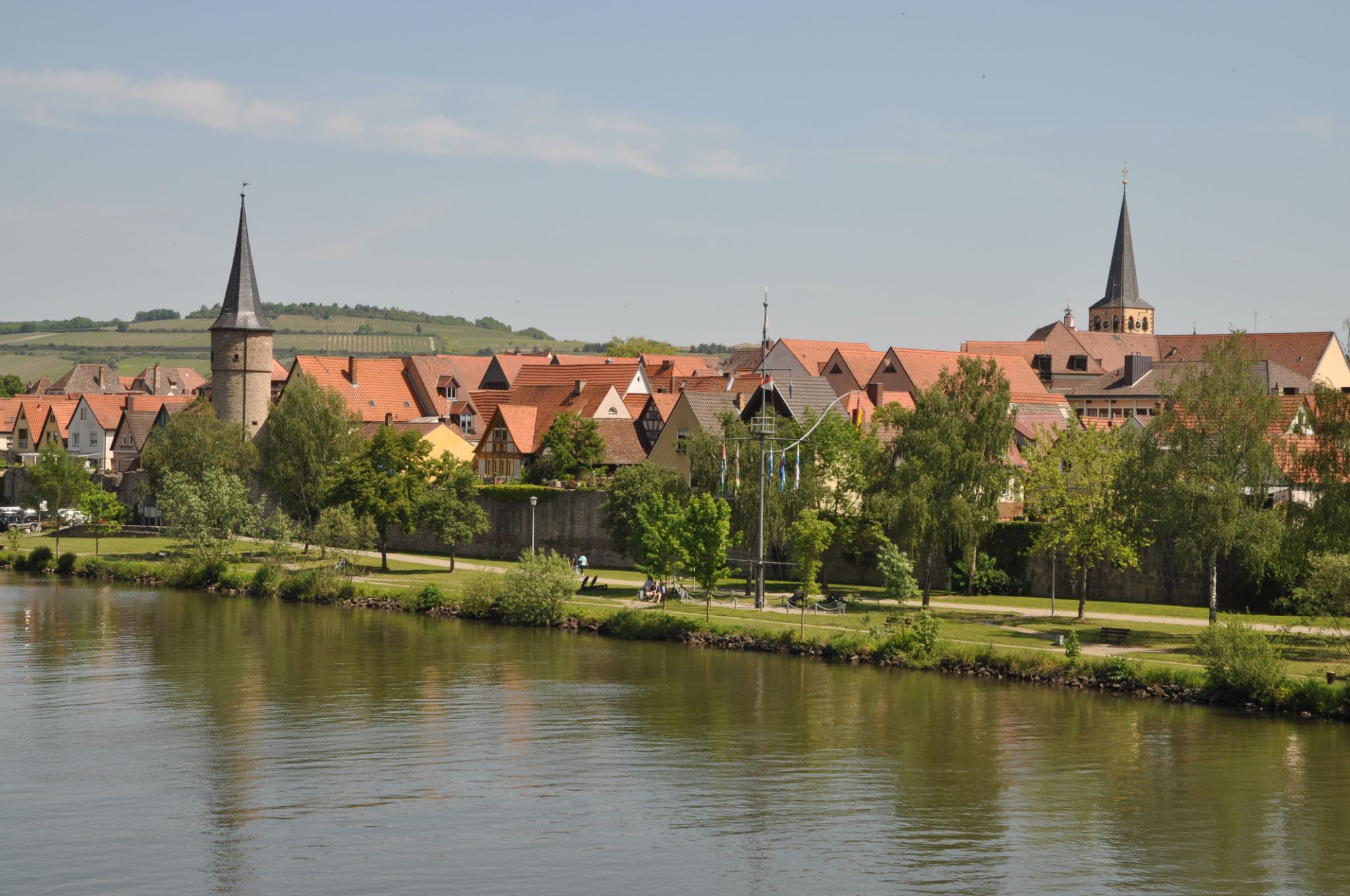
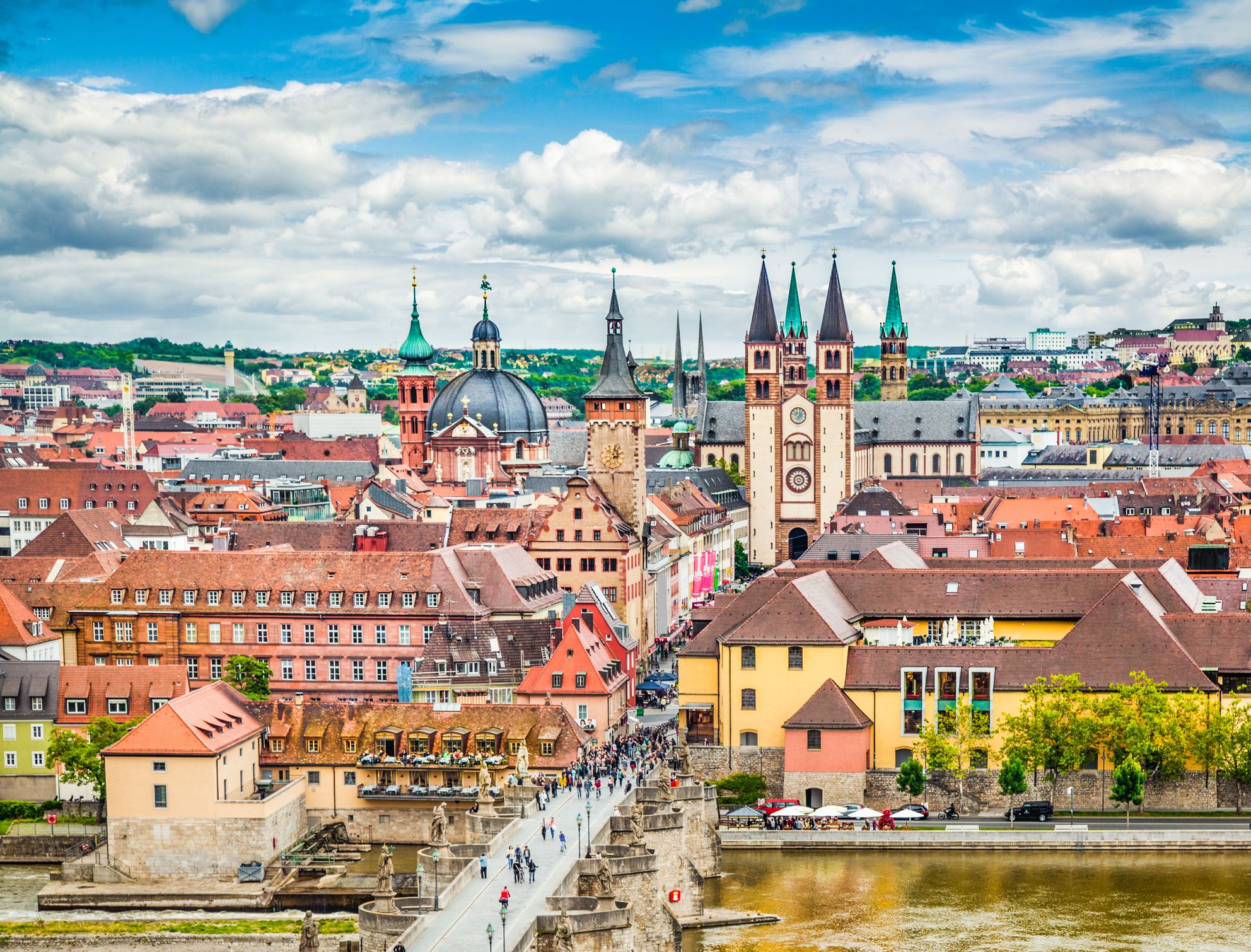
Würzburg to historyczne miasto położone nad rzeką Men w południowych Niemczech, znane ze swojego dziedzictwa kulturowego i malowniczych krajobrazów. Miasto zostało założone jeszcze w czasach rzymskich, a jego bogata historia odzwierciedla się w architekturze i zabytkach. Jedną z głównych atrakcji jest Rezydencja w Würzburgu, niegdyś rezydencja książąt-biskupów, wpisana na Listę Światowego Dziedzictwa UNESCO. Ten wspaniały budynek w stylu barokowym, z luksusowymi wnętrzami i pięknymi ogrodami, przyciąga turystów z całego świata. Dodatkowo miasto słynie ze swoich starożytnych fortec, takich jak Käpelsburg, z której roztacza się zapierający dech widok na miasto i rzekę.
Würzburg jest również centrum winiarskim, a region wokół miasta słynie z winnic, w których produkowany jest znany riesling. Miasto oferuje wiele przytulnych barów winiarskich i restauracji, w których turyści mogą delektować się lokalnymi winami. Würzburg jest idealnym miejscem dla tych, którzy cenią historię, architekturę i przyjemności gastronomiczne, a także dla tych, którzy chcą poczuć spokojną atmosferę małego miasta z bogatymi tradycjami kulturalnymi.

Schweinfurt to przemysłowe miasto w północnej Bawarii, położone nad rzeką Men. Historycznie odegrało kluczową rolę w rozwoju niemieckiego przemysłu łożysk kulkowych i inżynierii: to właśnie tutaj w XIX wieku powstały takie firmy jak Kugelfischer i SKF. Mimo przemysłowego charakteru, miasto zachowało historyczny urok — starówka z przytulnymi placami, gotyckimi kościołami i pozostałościami średniowiecznych murów nadaje mu niepowtarzalną atmosferę.
Dziś Schweinfurt łączy dziedzictwo techniczne z nowoczesnym życiem kulturalnym. W mieście znajduje się kilka interesujących muzeów, w tym Muzeum Georga Schäfera z imponującą kolekcją niemieckiej sztuki XX wieku. Dla podróżnych to może być nieoczekiwane odkrycie: bez tłumów turystów, ale z autentycznym smakiem Bawarii — jej dumą inżynieryjną, lokalną kuchnią i gościnną atmosferą.
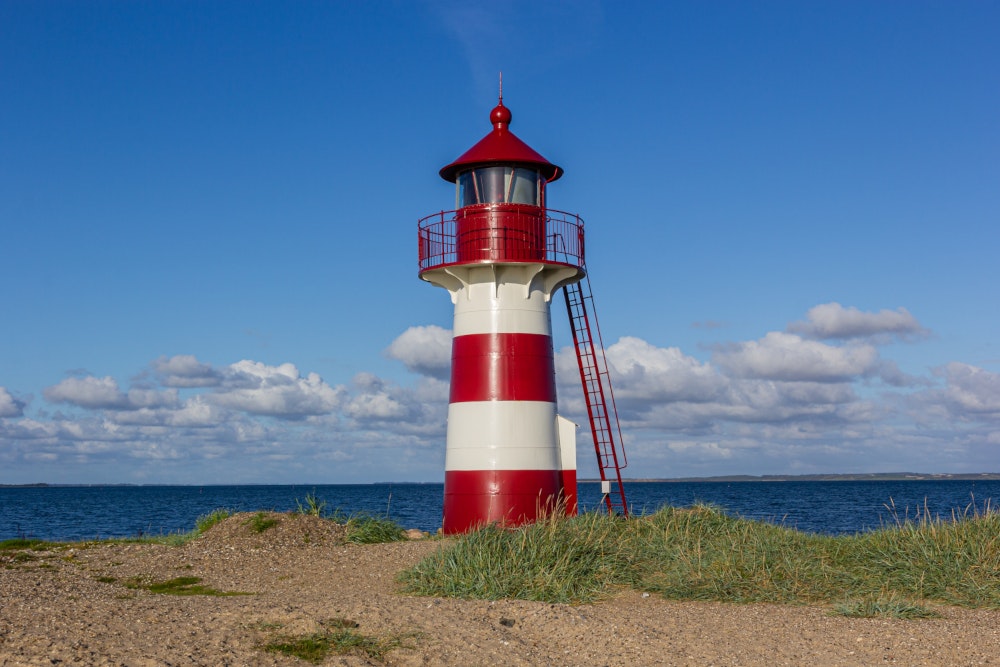
Położone na siedmiu wzgórzach Górnej Frankonii, to miasto urzeka średniowiecznym urokiem, domami z muru pruskiego i krętymi brukowanymi uliczkami. Bamberg, wpisany na listę światowego dziedzictwa UNESCO, szczyci się ponad tysiącem zachowanych budynków, w tym ikonicznym Starym Ratuszem, który zdaje się unosić nad rzeką Regnitz. Dzielnica "Mała Wenecja" z rybackimi domami z XVII wieku wzdłuż brzegów rzeki przypomina swoje włoskie imienniczki.
Bamberg słynie również z unikalnego piwa wędzonego, czyli Rauchbier, tradycji pielęgnowanej przez browary takie jak Schlenkerla od 1405 roku. Ten wyjątkowy trunek, wytwarzany przez suszenie słodu nad ogniem z drewna bukowego, nadaje mu dymny smak, który doskonale komponuje się z sycącą kuchnią regionalną. Czy to zwiedzając historyczne katedry, ciesząc się przejażdżką gondolą po kanałach, czy delektując się lokalnymi specjałami, Bamberg oferuje niezapomniane wrażenia.

Położone na siedmiu wzgórzach Górnej Frankonii, to miasto urzeka średniowiecznym urokiem, domami z muru pruskiego i krętymi brukowanymi uliczkami. Bamberg, wpisany na listę światowego dziedzictwa UNESCO, szczyci się ponad tysiącem zachowanych budynków, w tym ikonicznym Starym Ratuszem, który zdaje się unosić nad rzeką Regnitz. Dzielnica "Mała Wenecja" z rybackimi domami z XVII wieku wzdłuż brzegów rzeki przypomina swoje włoskie imienniczki.
Bamberg słynie również z unikalnego piwa wędzonego, czyli Rauchbier, tradycji pielęgnowanej przez browary takie jak Schlenkerla od 1405 roku. Ten wyjątkowy trunek, wytwarzany przez suszenie słodu nad ogniem z drewna bukowego, nadaje mu dymny smak, który doskonale komponuje się z sycącą kuchnią regionalną. Czy to zwiedzając historyczne katedry, ciesząc się przejażdżką gondolą po kanałach, czy delektując się lokalnymi specjałami, Bamberg oferuje niezapomniane wrażenia.
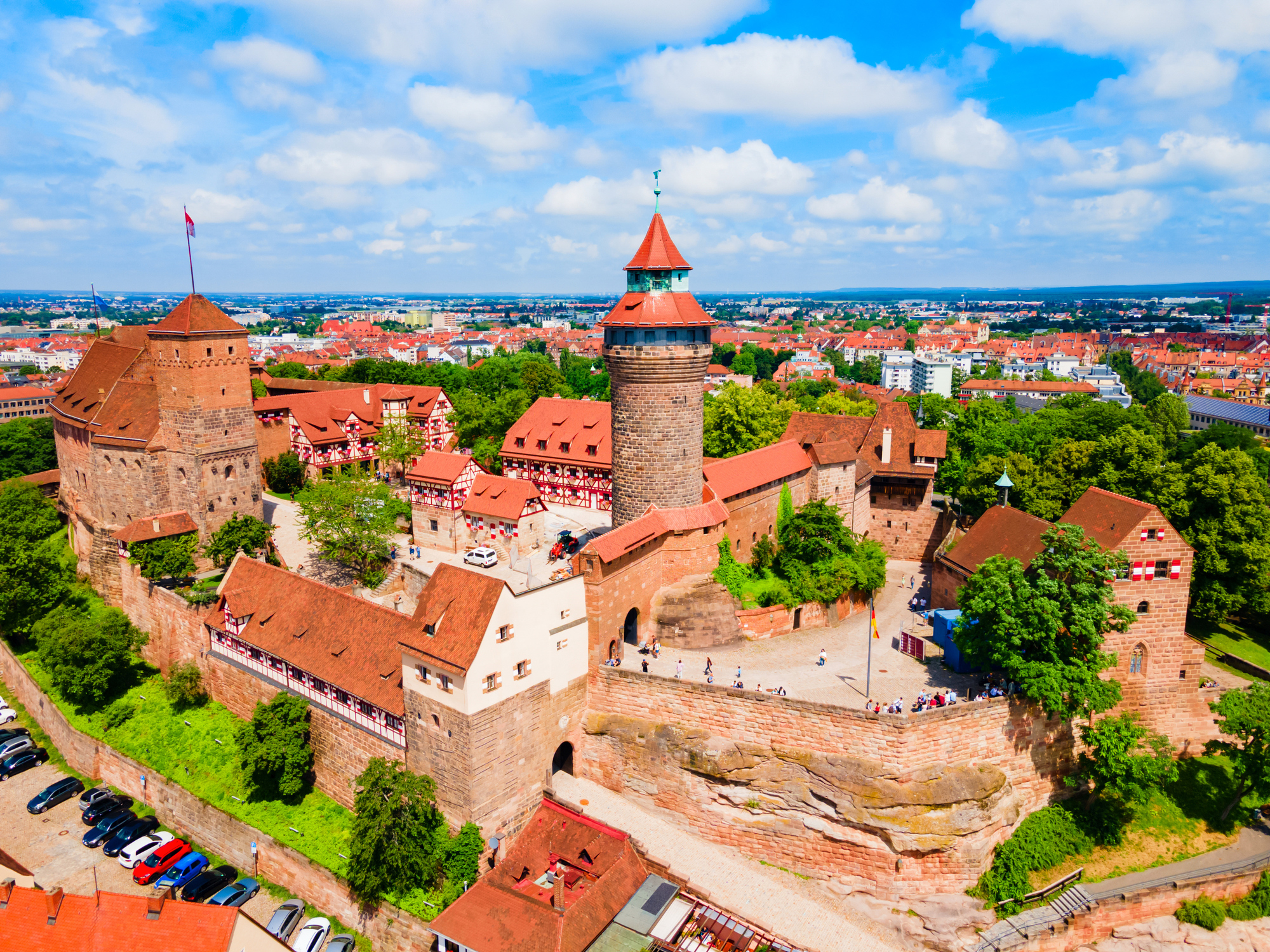
Norymberga to historyczne miasto na południu Niemiec, położone w Bawarii. Znane jest z atmosfery średniowiecza oraz jako centrum niemieckiej kultury i historii. Miasto stało się ważnym centrum handlowym i kulturalnym już w średniowieczu, a dziś jego historyczne centrum przyciąga turystów z całego świata. Jedną z głównych atrakcji jest Zamek Norymberski, który wznosi się nad miastem i oferuje zapierający dech widok na jego ulice i place. Warto również wspomnieć o słynnym rynku, na którym można kupić unikalne towary oraz spróbować tradycyjnych niemieckich dań.
Norymberga ma także istotne znaczenie w historii świata, ponieważ to właśnie tutaj po II wojnie światowej odbyły się procesy norymberskie. Dziś miasto zachowuje pamięć o tym okresie, posiadając liczne muzea i pomniki poświęcone tym wydarzeniom. Ponadto Norymberga jest ważnym centrum kulturalnym, w którym regularnie odbywają się festiwale teatralne, muzyczne i artystyczne. To miasto jest idealnym miejscem dla tych, którzy chcą cieszyć się połączeniem starożytnej historii, współczesnej kultury i unikalnej atmosfery Bawarii.
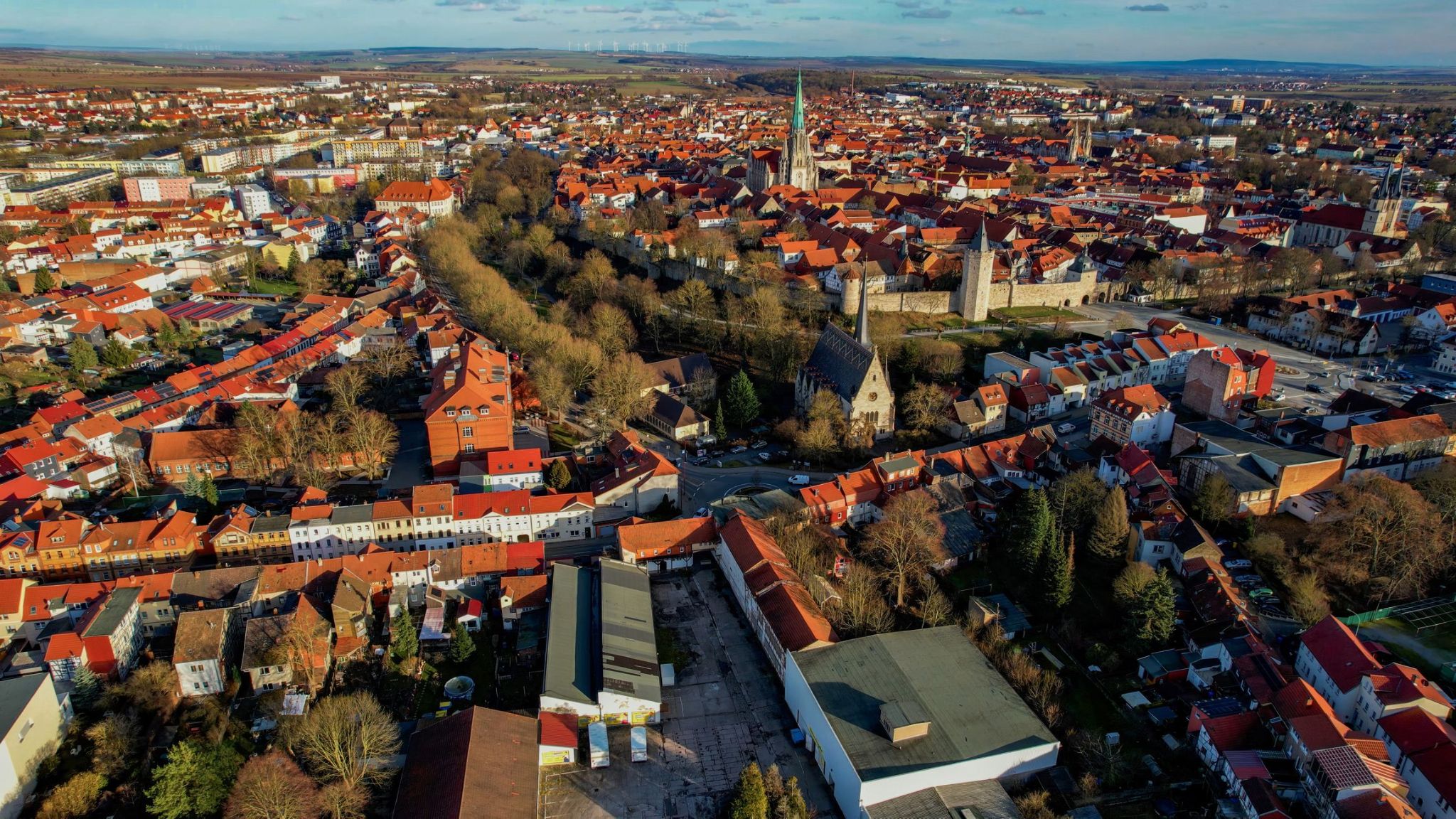
Mühlhausen to małe miasto położone w centralnej części Niemiec, w landzie Turyngia. Jego historia sięga średniowiecza, a miasto jest znane z licznych zabytków kulturowych i architektonicznych. Do głównych atrakcji Mühlhausen należy zabytkowy ratusz, a także liczne kościoły, w tym kościół św. Jakuba z pięknymi witrażami. Mühlhausen słynie również ze swojego urokliwego historycznego centrum, w którym zachowały się budynki reprezentujące różne style architektoniczne.
Oprócz atrakcji kulturowych, miasto przyciąga turystów swoją naturalną urodą. W okolicach Mühlhausen znajdują się malownicze lasy i wzgórza, które idealnie nadają się do pieszych wędrówek i aktywnego wypoczynku. Miasto jest także znane ze swoich tradycji i festiwali, które odbywają się przez cały rok. Turyści mogą poczuć atmosferę małego niemieckiego miasteczka z jego ciepłą gościnnością i bogatym dziedzictwem kulturowym.

Mühlhausen to małe miasto położone w centralnej części Niemiec, w landzie Turyngia. Jego historia sięga średniowiecza, a miasto jest znane z licznych zabytków kulturowych i architektonicznych. Do głównych atrakcji Mühlhausen należy zabytkowy ratusz, a także liczne kościoły, w tym kościół św. Jakuba z pięknymi witrażami. Mühlhausen słynie również ze swojego urokliwego historycznego centrum, w którym zachowały się budynki reprezentujące różne style architektoniczne.
Oprócz atrakcji kulturowych, miasto przyciąga turystów swoją naturalną urodą. W okolicach Mühlhausen znajdują się malownicze lasy i wzgórza, które idealnie nadają się do pieszych wędrówek i aktywnego wypoczynku. Miasto jest także znane ze swoich tradycji i festiwali, które odbywają się przez cały rok. Turyści mogą poczuć atmosferę małego niemieckiego miasteczka z jego ciepłą gościnnością i bogatym dziedzictwem kulturowym.
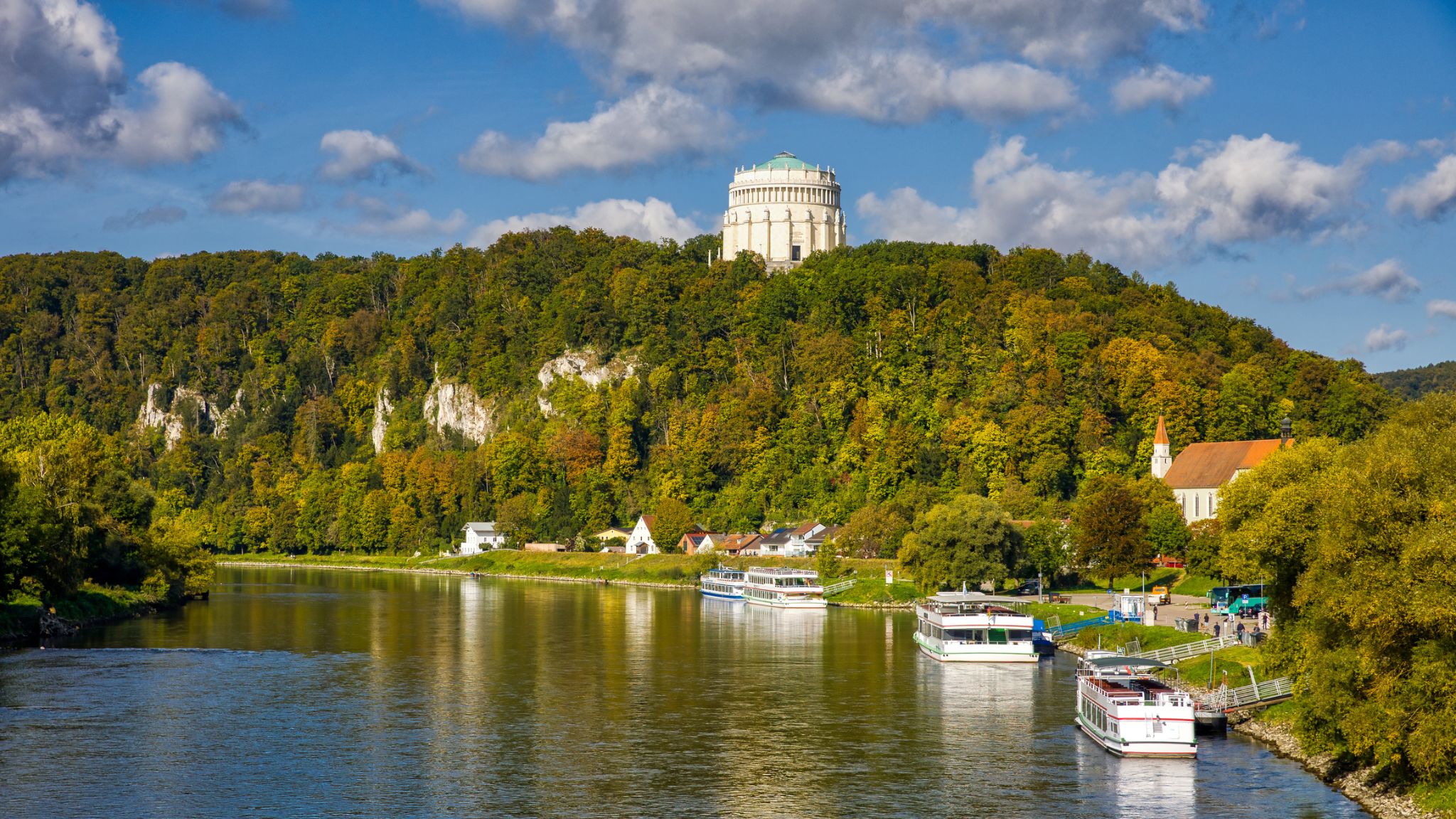
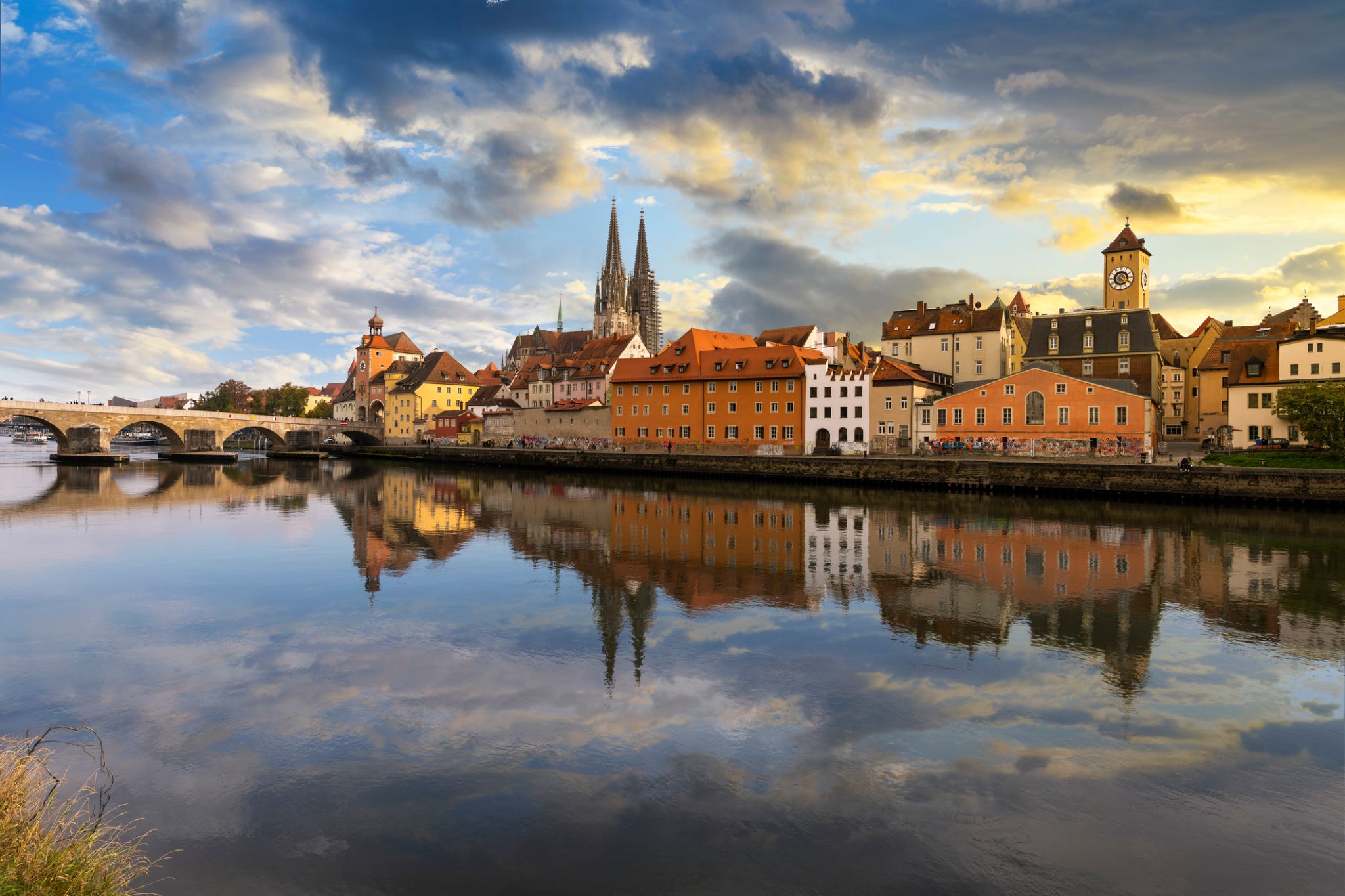
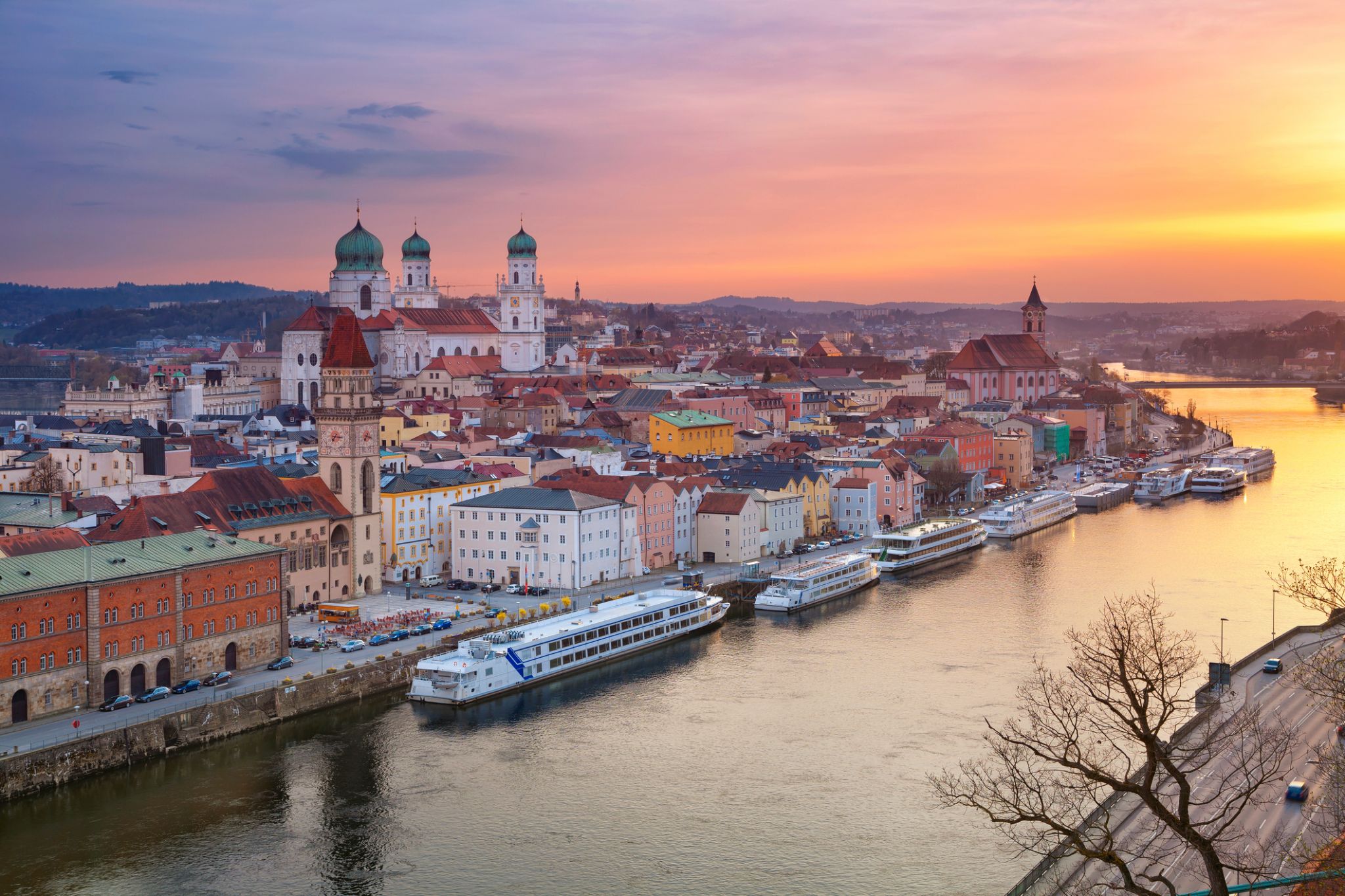
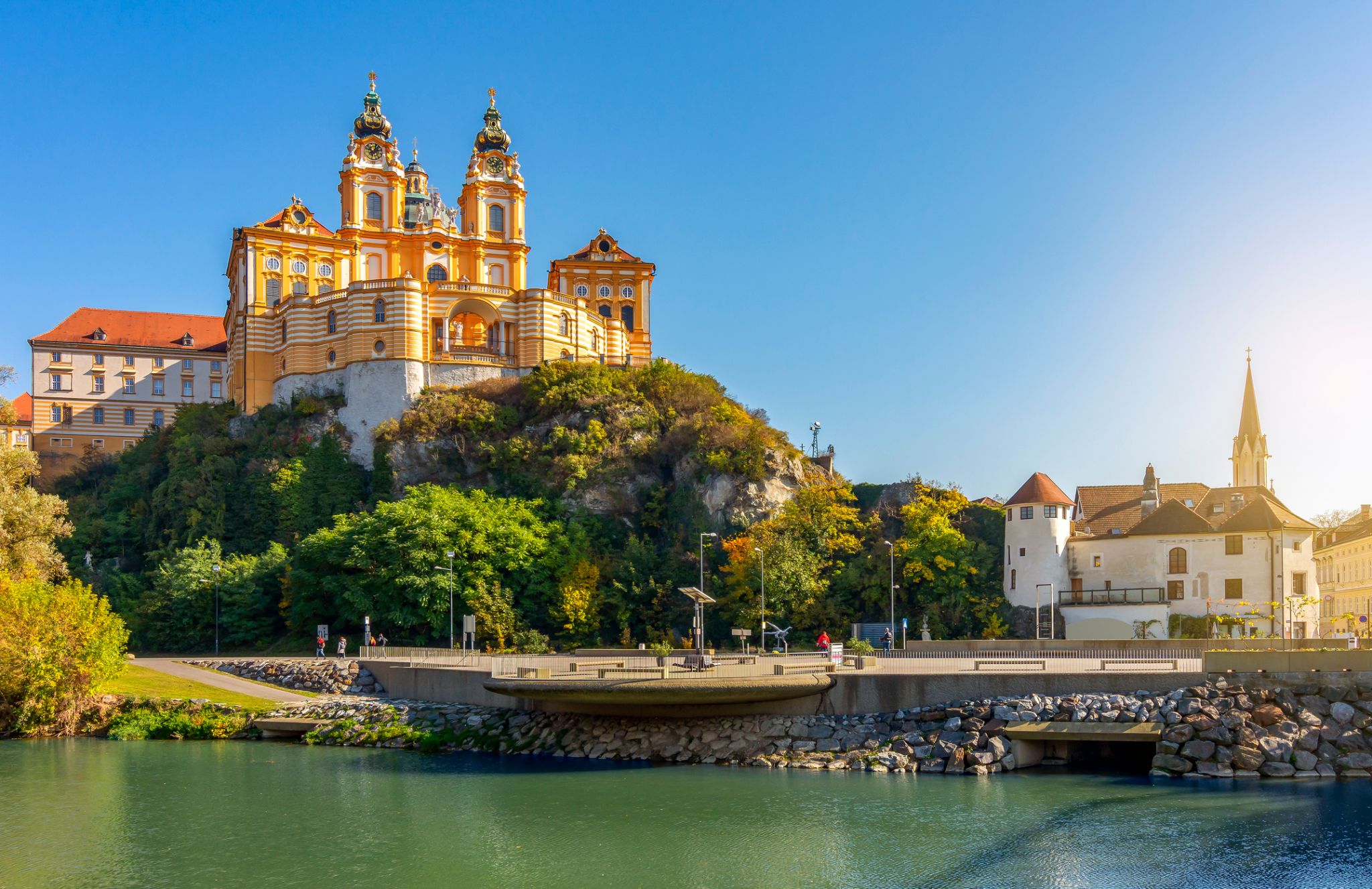
Melk is a city of Austria, in the federal state of Lower Austria, next to the Wachau valley along the Danube. Melk has a population of 5,257 (as of 2012). It is best known as the site of a massive baroque Benedictine monastery named Melk Abbey.
The town is first mentioned as Medilica in 831 in a donation of Louis the German; the name is from a Slavic word for 'border.' The area around Melk was given to Leopold I, Margrave of Austria, in the year 976 to serve as a buffer between the Magyars to east and Bavaria to the west. In 996 mention was first made of an area known as Ostarrîchi, which is the origin of the word Österreich (German for Austria). The bluff which holds the current monastery held a Babenberger castle until the site was given to Benedictine monks from nearby Lambach by Leopold II, in 1089. Melk received market rights in 1227 and became a municipality in 1898. In a very small area, Melk presents a great deal of architectural variety from many centuries.
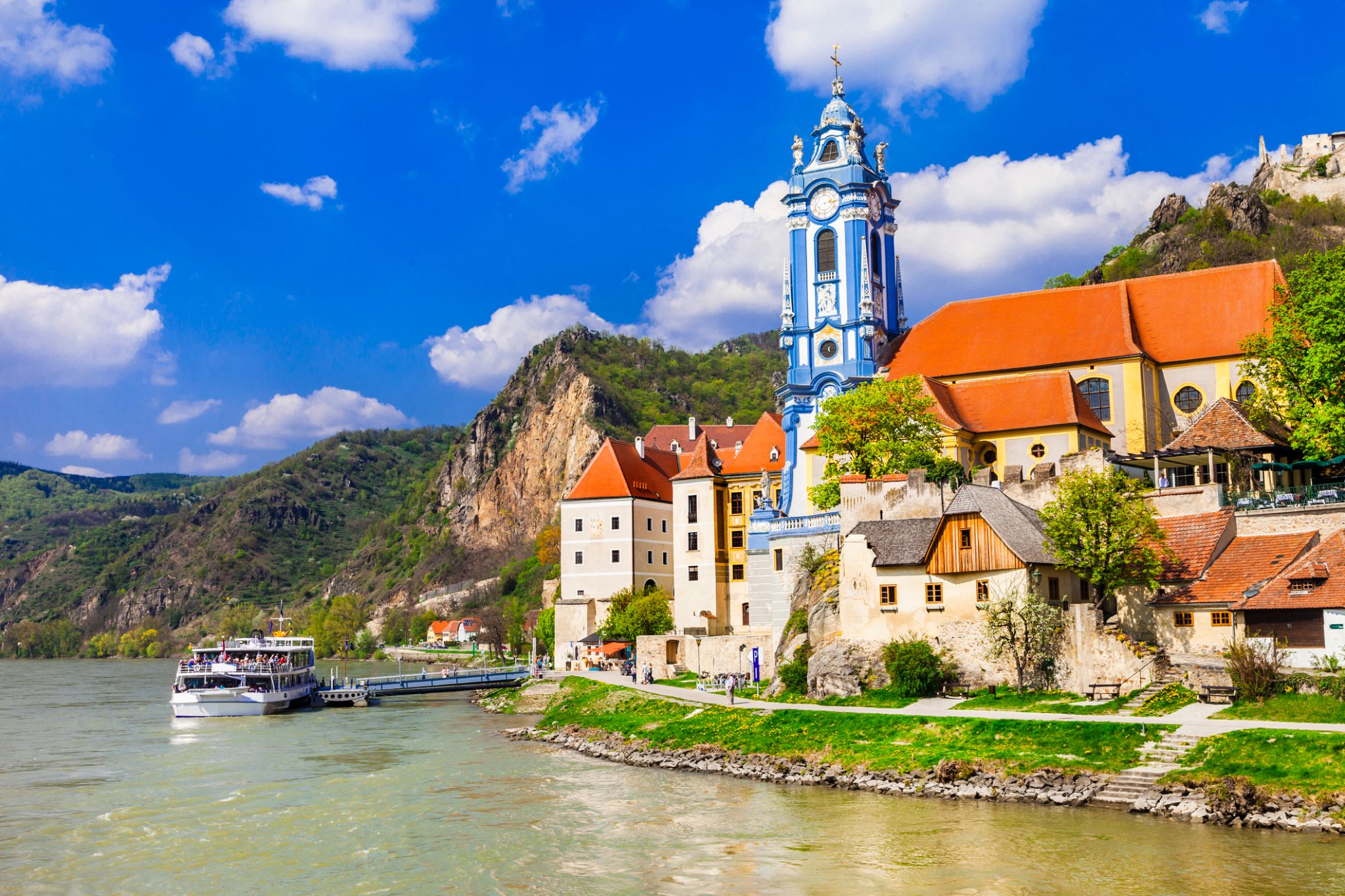
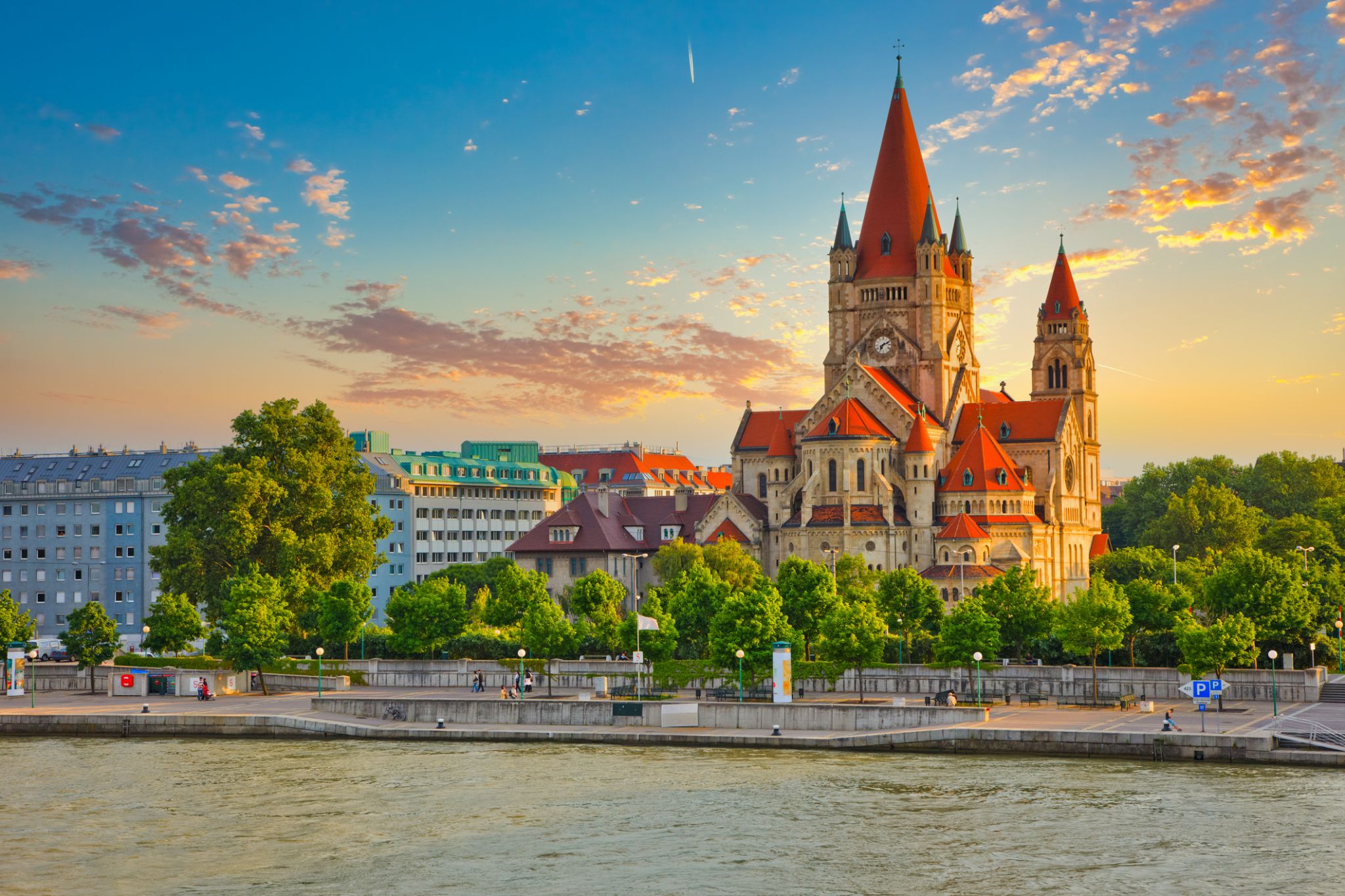
Vienna is the federal capital and largest city of Austria, and one of the nine states of Austria. Vienna is Austria's primate city, with a population of about 1.9 million (2.6 million within the metropolitan area, nearly one third of Austria's population), and its cultural, economic, and political centre. It is the 7th-largest city by population within city limits in the European Union. Until the beginning of the 20th century, it was the largest German-speaking city in the world, and before the splitting of the Austro-Hungarian Empire in World War I, the city had 2 million inhabitants. Today, it has the second largest number of German speakers after Berlin.Vienna is host to many major international organizations, including the United Nations and OPEC. The city is located in the eastern part of Austria and is close to the borders of the Czech Republic, Slovakia, and Hungary. These regions work together in a European Centrope border region. Along with nearby Bratislava, Vienna forms a metropolitan region with 3 million inhabitants. In 2001, the city centre was designated a UNESCO World Heritage Site. In July 2017 it was moved to the list of World Heritage in Danger.
Apart from being regarded as the City of Music[ because of its musical legacy, Vienna is also said to be "The City of Dreams" because it was home to the world's first psychoanalyst – Sigmund Freud. The city's roots lie in early Celticand Roman settlements that transformed into a Medieval and Baroque city, and then the capital of the Austro-Hungarian Empire. It is well known for having played an essential role as a leading European music centre, from the great age of Viennese Classicism through the early part of the 20th century. The historic centre of Vienna is rich in architectural ensembles, including Baroque castles and gardens, and the late-19th-century Ringstraße lined with grand buildings, monuments and parks.
Vienna is known for its high quality of life. In a 2005 study of 127 world cities, the Economist Intelligence Unit ranked the city first (in a tie with Vancouver and San Francisco) for the world's most liveable cities. Between 2011 and 2015, Vienna was ranked second, behind Melbourne. In 2018, it replaced Melbourne as the number one spot. For eight consecutive years (2009–2016), the human-resource-consulting firm Mercer ranked Vienna first in its annual "Quality of Living" survey of hundreds of cities around the world, a title the city still held in 2016. Monocle's 2015 "Quality of Life Survey" ranked Vienna second on a list of the top 25 cities in the world "to make a base within."
The UN-Habitat classified Vienna as the most prosperous city in the world in 2012/2013. The city was ranked 1st globally for its culture of innovation in 2007 and 2008, and sixth globally (out of 256 cities) in the 2014 Innovation Cities Index, which analyzed 162 indicators in covering three areas: culture, infrastructure, and markets. Vienna regularly hosts urban planning conferences and is often used as a case study by urban planners.
Between 2005 and 2010, Vienna was the world's number-one destination for international congresses and conventions. It attracts over 6.8 million tourists a year.

Vienna is the federal capital and largest city of Austria, and one of the nine states of Austria. Vienna is Austria's primate city, with a population of about 1.9 million (2.6 million within the metropolitan area, nearly one third of Austria's population), and its cultural, economic, and political centre. It is the 7th-largest city by population within city limits in the European Union. Until the beginning of the 20th century, it was the largest German-speaking city in the world, and before the splitting of the Austro-Hungarian Empire in World War I, the city had 2 million inhabitants. Today, it has the second largest number of German speakers after Berlin.Vienna is host to many major international organizations, including the United Nations and OPEC. The city is located in the eastern part of Austria and is close to the borders of the Czech Republic, Slovakia, and Hungary. These regions work together in a European Centrope border region. Along with nearby Bratislava, Vienna forms a metropolitan region with 3 million inhabitants. In 2001, the city centre was designated a UNESCO World Heritage Site. In July 2017 it was moved to the list of World Heritage in Danger.
Apart from being regarded as the City of Music[ because of its musical legacy, Vienna is also said to be "The City of Dreams" because it was home to the world's first psychoanalyst – Sigmund Freud. The city's roots lie in early Celticand Roman settlements that transformed into a Medieval and Baroque city, and then the capital of the Austro-Hungarian Empire. It is well known for having played an essential role as a leading European music centre, from the great age of Viennese Classicism through the early part of the 20th century. The historic centre of Vienna is rich in architectural ensembles, including Baroque castles and gardens, and the late-19th-century Ringstraße lined with grand buildings, monuments and parks.
Vienna is known for its high quality of life. In a 2005 study of 127 world cities, the Economist Intelligence Unit ranked the city first (in a tie with Vancouver and San Francisco) for the world's most liveable cities. Between 2011 and 2015, Vienna was ranked second, behind Melbourne. In 2018, it replaced Melbourne as the number one spot. For eight consecutive years (2009–2016), the human-resource-consulting firm Mercer ranked Vienna first in its annual "Quality of Living" survey of hundreds of cities around the world, a title the city still held in 2016. Monocle's 2015 "Quality of Life Survey" ranked Vienna second on a list of the top 25 cities in the world "to make a base within."
The UN-Habitat classified Vienna as the most prosperous city in the world in 2012/2013. The city was ranked 1st globally for its culture of innovation in 2007 and 2008, and sixth globally (out of 256 cities) in the 2014 Innovation Cities Index, which analyzed 162 indicators in covering three areas: culture, infrastructure, and markets. Vienna regularly hosts urban planning conferences and is often used as a case study by urban planners.
Between 2005 and 2010, Vienna was the world's number-one destination for international congresses and conventions. It attracts over 6.8 million tourists a year.
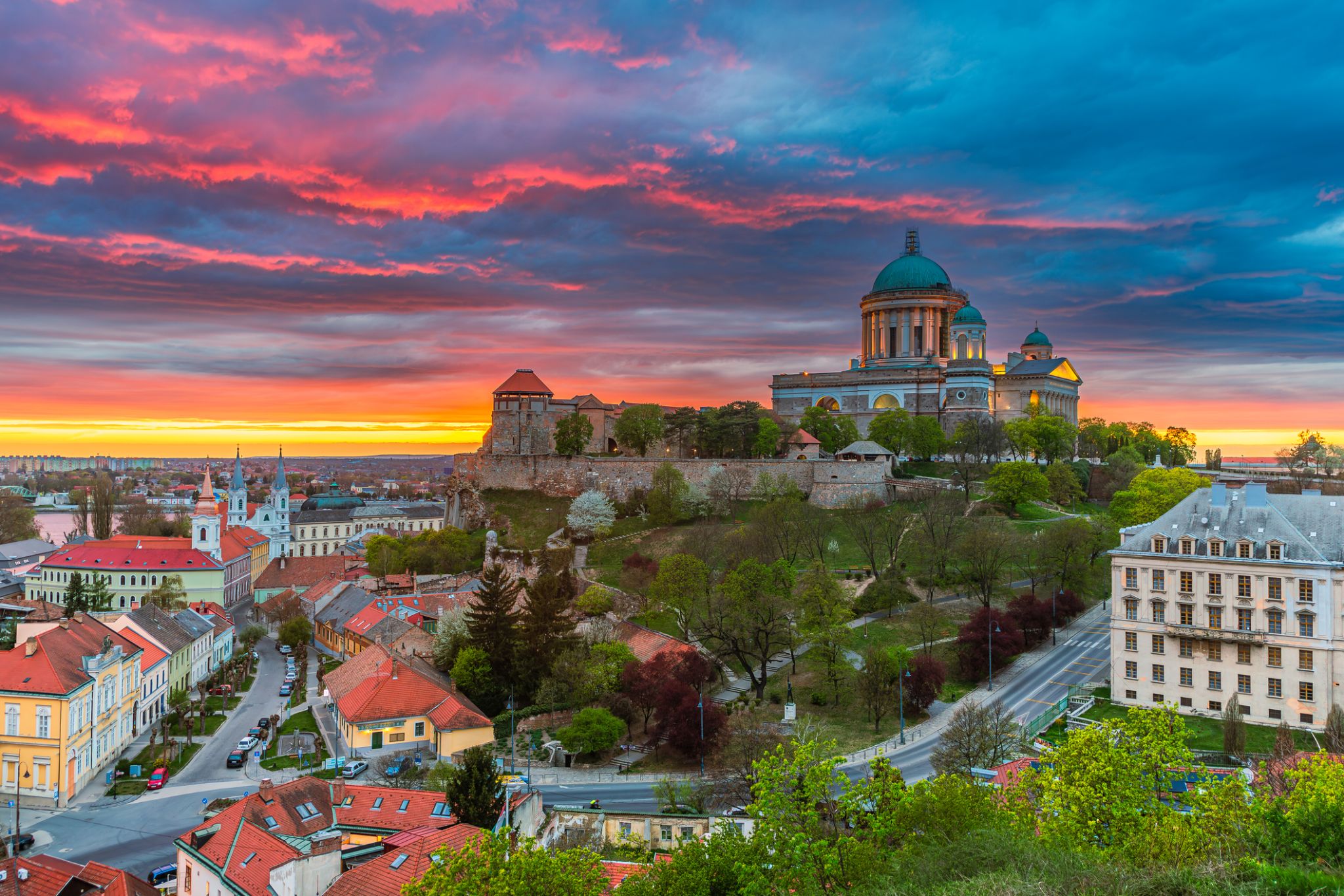
Esztergom is a city in northern Hungary, 46 kilometres (29 miles) northwest of the capital Budapest. It lies in Komárom-Esztergom county, on the right bank of the river Danube, which forms the border with Slovakia there.
Esztergom was the capital of Hungary from the 10th till the mid-13th century when King Béla IV of Hungary moved the royal seat to Buda.
Esztergom is the seat of the prímás (see Primate) of the Roman Catholic Church in Hungary, and the former seat of the Constitutional Court of Hungary. The city has the Keresztény Múzeum, the largest ecclesiastical collection in Hungary. Its cathedral, Esztergom Basilica is the largest church in Hungary.
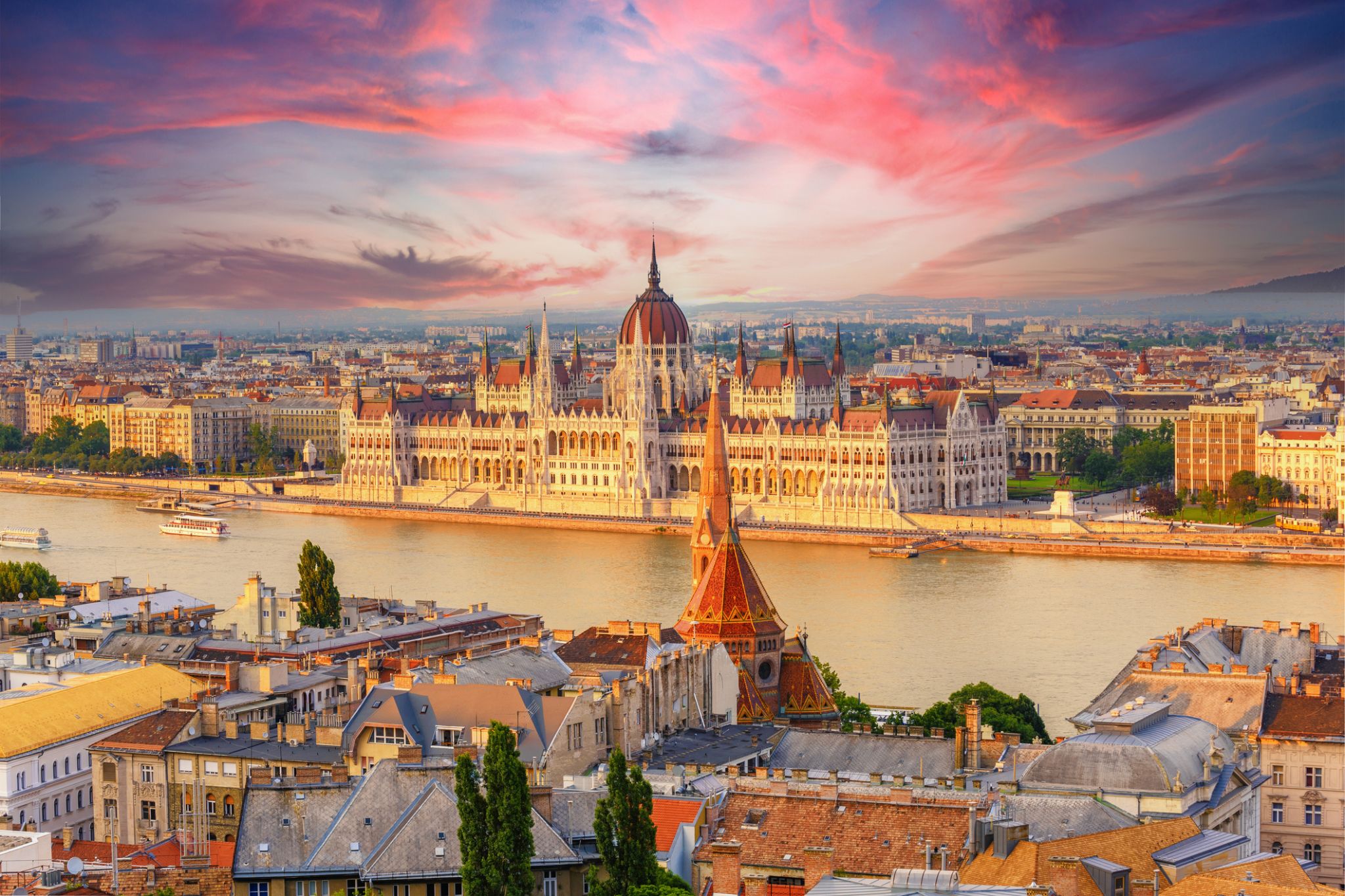
the capital of Hungary, in the northern central part of the country; population 1,712,210 (2009). It was formed in 1873 by the union of the city of Buda on the right bank of the Danube River with the city of Pest on the left.

the capital of Hungary, in the northern central part of the country; population 1,712,210 (2009). It was formed in 1873 by the union of the city of Buda on the right bank of the Danube River with the city of Pest on the left.

the capital of Hungary, in the northern central part of the country; population 1,712,210 (2009). It was formed in 1873 by the union of the city of Buda on the right bank of the Danube River with the city of Pest on the left.